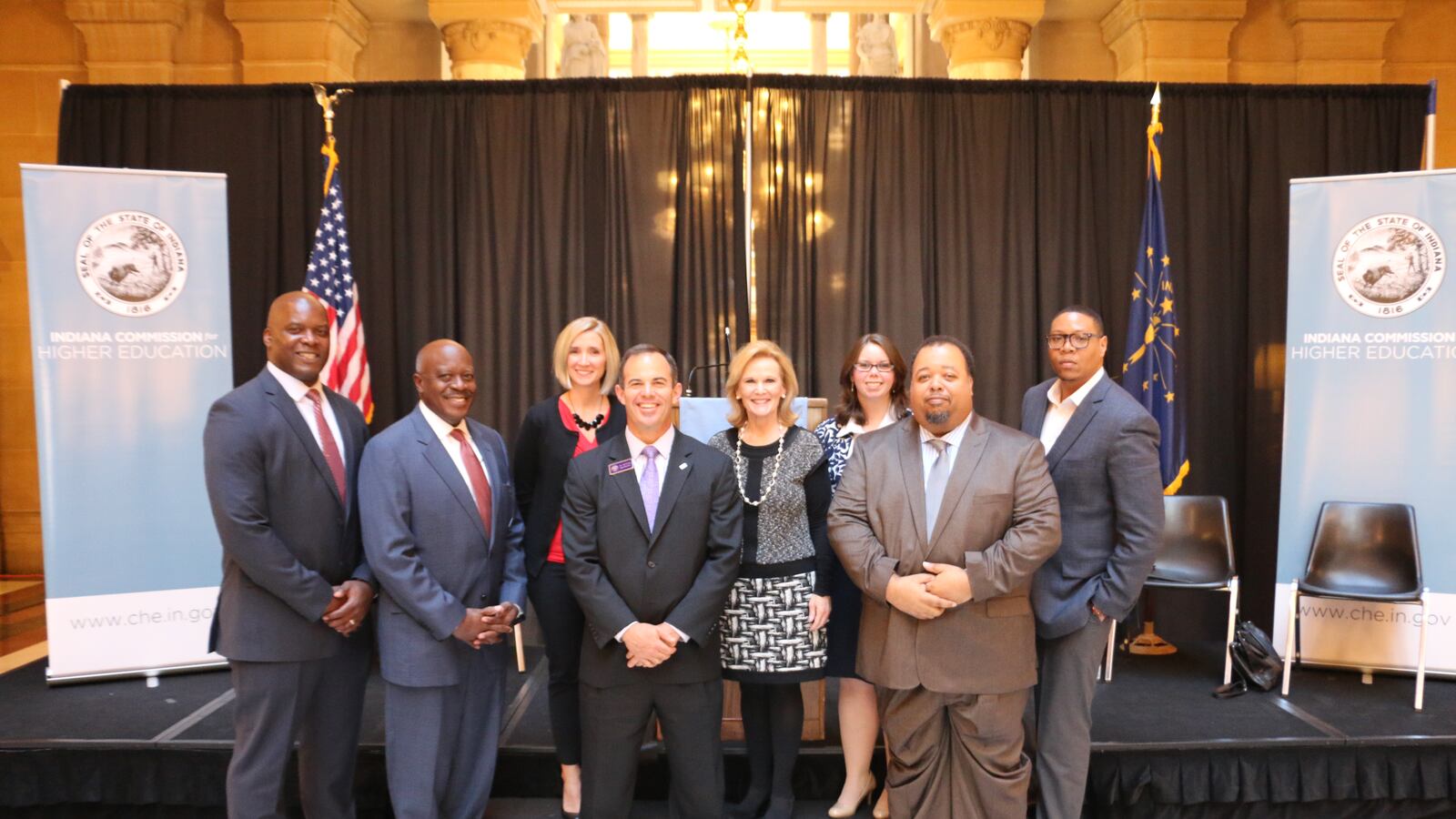Low-income students across Indiana could be eligible to get four years of free college tuition, but many of them still aren’t on track to earn it.
Indiana University, the Indiana Black Expo and the Indiana Commission for Higher Education announced a partnership on Monday aimed at solving that problem. Together, the groups will help students complete the state’s 21st Century Scholars program, which gives scholarships to students who complete activities meant to prepare them for college.
The partnership will help eligible eighth-graders enroll in the program and then arrange for them to visit a college campus later on in high school, one of the required activities. The goal is to enroll 500 new scholars this year and make sure 200 current scholars visit IU’s Bloomington campus, on a trip where food and transportation would be provided.
The new partnership will start with Indianapolis Public Schools, Wayne Township, Warren Township and students in the Archdiocese of Indianapolis Catholic schools.
“This program helps to fill in the gaps for our 21st Century Scholars,” said Dena Cushenberry, superintendent of Warren Township Schools, “making it easier for them to complete the program requirements, and ultimately have the opportunity to get an affordable college education and transition into the work world without debilitating student loan debt.”
The partnership is aimed at helping students adapt to changes to the 26-year-old 21st Century Scholars program made in 2011. That’s when the Indiana General Assembly heaped on extra requirements — including the checklist of activities to complete during high school — and raised the GPA threshold from 2.0 to 2.5.
This year’s high school seniors are the first graduating class that will be held to the new standards.
This summer, about one-third of seniors in the program statewide were on track to earn scholarships, up from 20 percent this spring. Countywide, it’s at 25 percent, up from 13 percent.
According to state data, students who complete the program and go on to college are less likely to need remediation — 21 percent of scholars do, versus 34 percent of low-income students not in the program. They’re also more likely to stay in school after their first year and complete college on time.
Teresa Lubbers, who heads the higher education commission, said Indianapolis students gain a big advantage by having local groups get involved.
“Communities with active partnerships, like this one led by the Indiana Black Expo and Indiana University, are the most successful in getting these students to and through college successfully,” Lubbers said in a statement. “Indiana needs more partnerships like this one in every corner of the state.”

